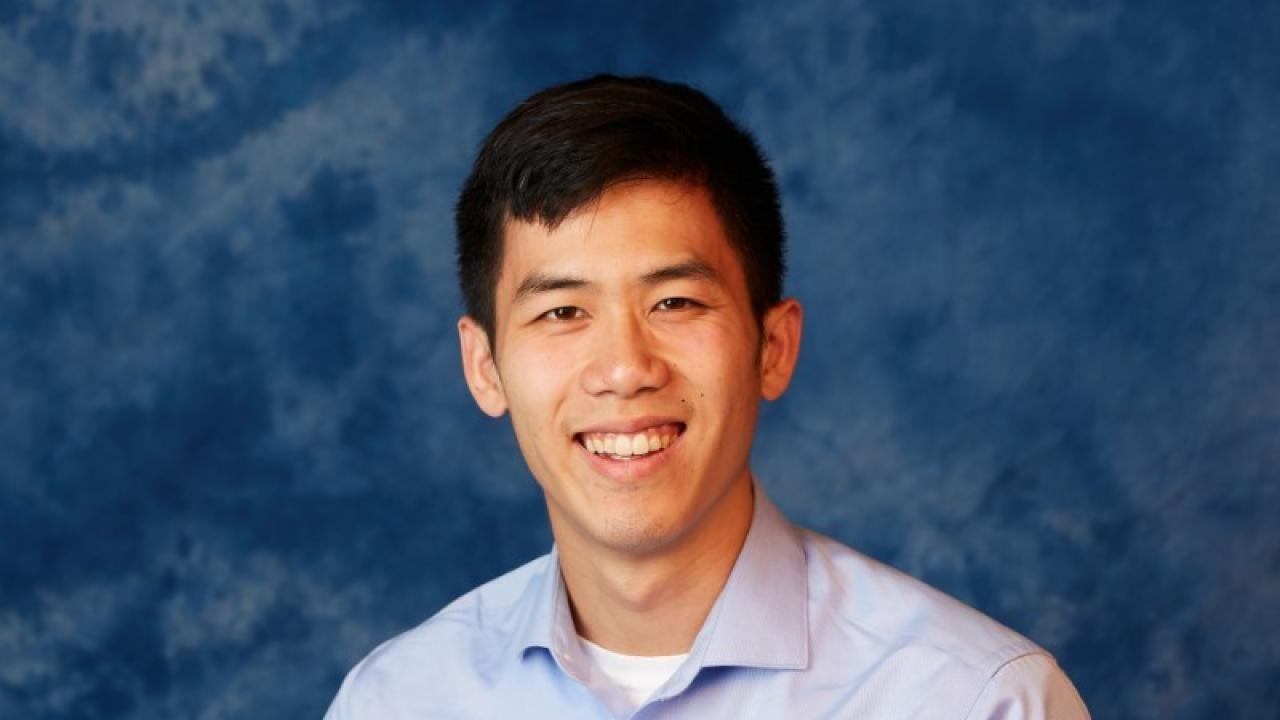
Eric Ung: Grant and Contracts Accountant at CommuniCare Health Centers
"In economics, I learned how to analyze data, visually present trends and communicate my reasoning. One thing I really appreciate is that rather than just memorizing information, I was taught how to think."
Major: Economics
Minor: Managerial Economics
Current Position/Status: Grant and Contracts Accountant at CommuniCare Health Centers
How did your UC Davis Education prepare you for your current employment or graduate school program or both?
My UC Davis education taught me critical thinking and effective problem solving. In economics, I learned how to analyze data, visually present trends and communicate my reasoning. One thing I really appreciate is that rather than just memorizing information, I was taught how to think. That's a valuable characteristic to have. When I was completing my masters at the UC Davis Graduate School of Management and even now working as an accountant, I'm not given step-by-step instruction. Instead I have to take what I know and creatively work towards a solution. I started developing that kind of thinking as I was working with supply and demand graphs and mathematical models. Additionally, I learned how to talk about my answers, which is common in economic courses. In the working world, we're always working in teams and clear communication is essential.
Are there any classes or activities from UC Davis you found particularly helpful?
Looking back, the data related courses were helpful. I still use some of the statistical methods and software programming that were introduced to me in classes like econometrics or financial economics. As an economic major, you don't have to just become an economist. Given the breadth of information taught, possible career paths are data scientist, accountant or financial analyst. Some of the activities I enjoyed were the socials hosted by the History, Economics and East Asian Studies department. It's a great opportunity to meet people who have a common point of interest. There's some people I met who I still have good connections with.
Do you have any advice for current students?
My biggest advice is to receive help and wisdom from a mentor whether that be a professor or advisor. A lot of times we think we can handle college and going out into the working world on our own, but it's a lot to think about. It's really helpful to talk to someone about their experience and see what different careers are like. I'm grateful I was able to talk to advisors and professors while in my undergraduate and graduate education. Even now I'm asking my manager about how to navigate certain aspects of my job and working in the accounting industry. We don't have to go through life on our own!
What do you do as a grants and contracts accountant?
As a grants and contracts accountant, I pretty much do anything related to finances. When my organization receives funding for medical and behavioral health work, I document the contracts, help construct the budget and record the expenses allocated to the budget. My day-to-day consist of a lot of Excel and accounting software to record journal entries and prepare financial statements. Occasionally I do create data visuals and statistical software to clean and present data. I use a lot of what I learned in my economic and accounting courses. The coolest part about my job is that I'm learning something new every day!
